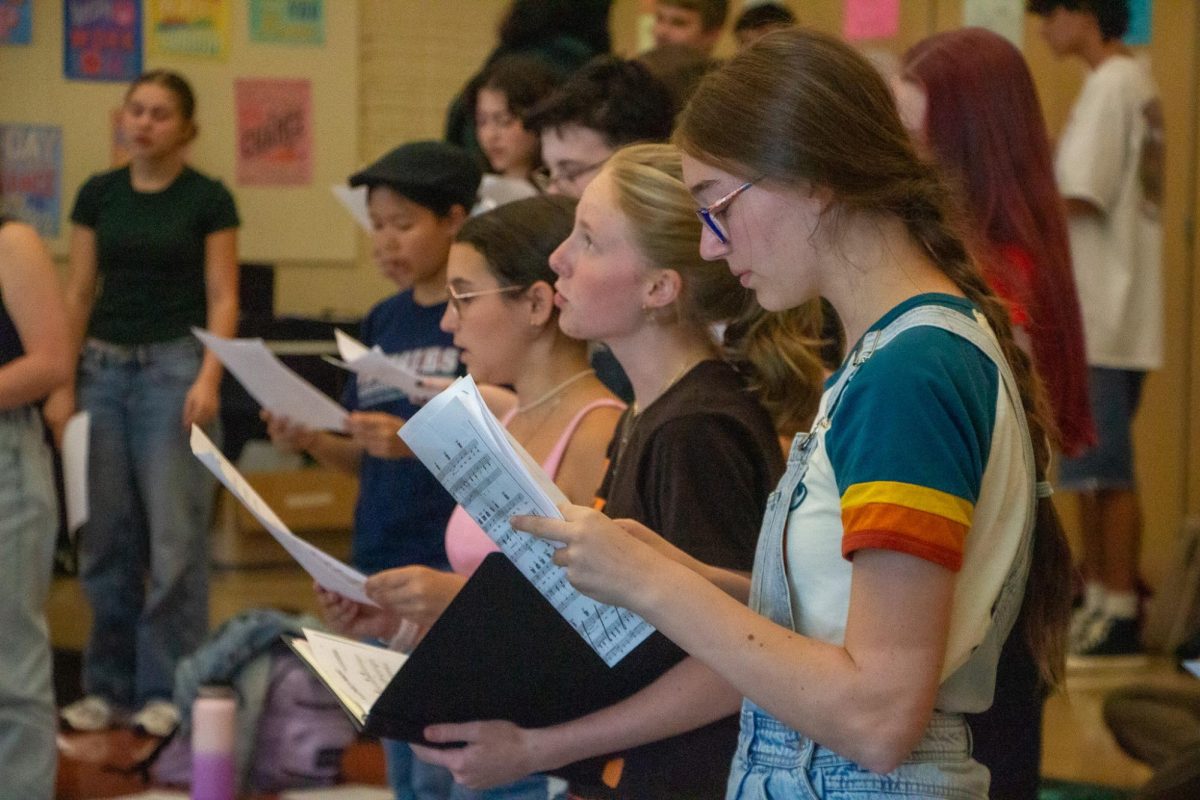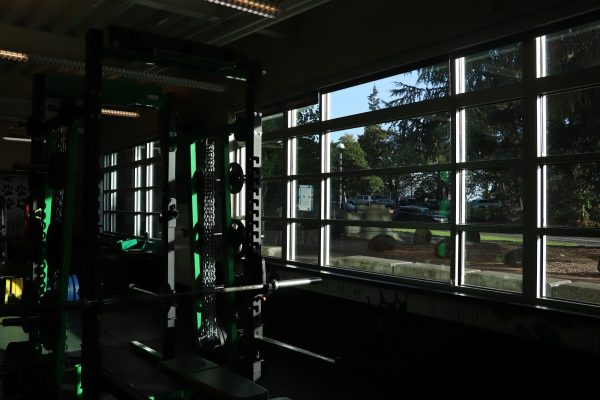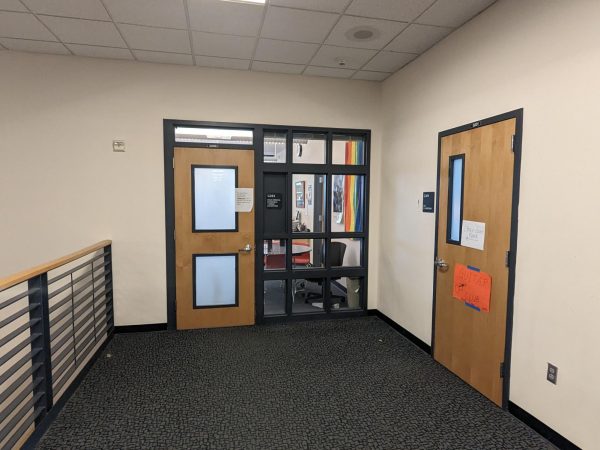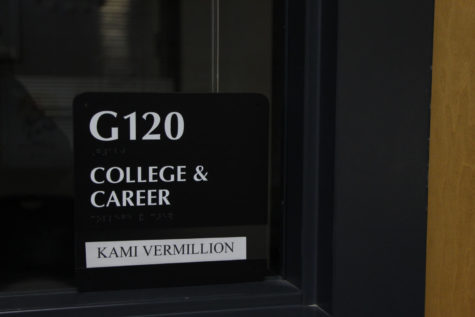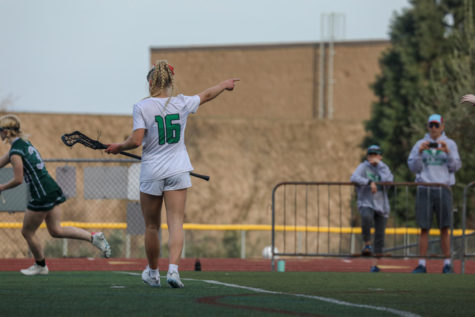Planning accordingly
Students prepare to forecast for next year

ISEF projects sit under lights. In the 2023-2024 school year, ISEF will be offered as a year-long science credit.
Excitement over new classes and a new schedule has hallways buzzing. The 2023-2024 school year will look different for students and teachers, with the new eight-period schedule and the addition of a ‘house’ class. Forecasting assemblies in early March for freshmen, sophomores, and juniors provided insight into what the next school year may look like.
An entirely new schedule means that students are being more cautious and thoughtful about their classes, and strategizing how to meet their graduation requirements.
Thabela Fashu-Kanu, junior, is looking to optimize the eight-period schedule.
“I’m basically just adding more [classes] so I can fit my requirements faster,” Fashu-Kanu said. “I can finish senior year more quickly and have more frequent free periods.”
The eight-period schedule has introduced a handful of new classes that students can take, such as Astronomy, Forest Resource Management I, and Ethnic Studies, which all count for 0.5 of a credit.
“Ethnic Studies is definitely something I’m interested in because I’m really interested in social science,” Fashu-Kanu said.
Ethnic Studies is a new world history elective, which is a credit that students are required to take in their junior or senior year.
Most students take their time deciding what classes they will forecast for, especially if they’re considering any AP courses. Finn Ryan, freshman, is weighing his options.
“I’m thinking about taking an AP class one day, but I’m kind of nervous,” Ryan said.
AP classes are often a heavy course load and can demand a lot of students’ time, sometimes including work over the summer before the class has even started.
“I think that if I could like, re-forecast, I would probably do less APs because it’s a lot of work and a lot of stress,” Fashu-Kanu said.
More periods can open up more opportunities for students as well. This way they can not only take more classes, but also free up more time outside of school.
“I’ll have some study time, which is nice,” Ryan said. “I don’t get that at home very often because I play sports and stuff.”
The new house class is another thing for students to consider when deciding how much space they have for electives. The period will primarily be for studying, but also provide practical education that will prepare students for college and/or their adult lives. It’s controversial though, as some upperclassmen don’t see what’s in it for them.
“I don’t like the house class,” Fashu-Kanu said. “I think that for freshmen who are incoming, that’s a really helpful class. But since I’m already going to be a senior next year, I just think that it’s kind of useless.”
Students from all grade levels were expecting an extra period for an elective, or even a free period in their day for studying, later start, or an early-release.
There has been a lot of discourse about electives and elective credits following the forecasting assemblies. For students, there’s demand for electives and a need for availability. Required subjects like health and English can quickly fill space in students’ schedules, as they need two semesters of health and four full years of English to graduate.
“I just need to get my elective credits basically, and the house class now,” Fashu-Kanu said.
Another one of the new changes for students next year will be that they won’t get physical education (PE) credits for playing a sport, although credits they’ve received for sports in prior years will stay. Some students are concerned about having space in their schedule to actually take classes they’re interested in, if they’re now required to take a health or PE class during the school day.
“I think it’s really annoying that even if you do a whole sport you have to still take a PE class,” Fashu-Kanu said. “I just don’t think that makes sense.”
Having an option for a PE credit through a sport was something that many students relied on for earning credits towards their graduation and freeing up their schedule. It used to be offered over the summer as well, but the only summer courses available now are trigonometry and credit recovery classes. Sam Justus, sophomore, also reacted to the change.
“I was surprised that they took away the sports credits for PE,” Justus said. “I know that [it] helps a lot of students and a lot of people don’t have time or room in their schedules to add in extra classes.”
It’s an issue that numerous students were concerned with last year and were hoping would be resolved with an eight-period schedule.
“I think with forecasting last year, I had a lot of limitations,” Ryan said. “I was gonna take Spanish, which is a year long class, and I had to do [Health I] and world history as well. So I got like, one elective.”
Counselors can be helpful to students when it comes to choosing the best classes for them, and to clear up any confusion about forecasting.
“[Last year,] there was a lot of steps and instructions, but I figured it out and my counselor helped a lot,” Justus said. “I ended up with electives I didn’t really want to take in my schedule, but my counselor helped me rearrange everything.”
Between less summer classes, more periods to fill, and new requirements, students have a lot to consider when it comes to forecasting for the 2023-2024 school year.
Your donation will support the student journalists of West Linn High School. Your contribution will allow us to continue to produce quality content by purchasing equipment, software, and continuing to host our website on School Newspapers Online (SNO).

Edie Himmer, senior, is the Editor-in-Chief for wlhsNOW and the Chair of the Editorial Board. This is her third year in the journalism program and she...



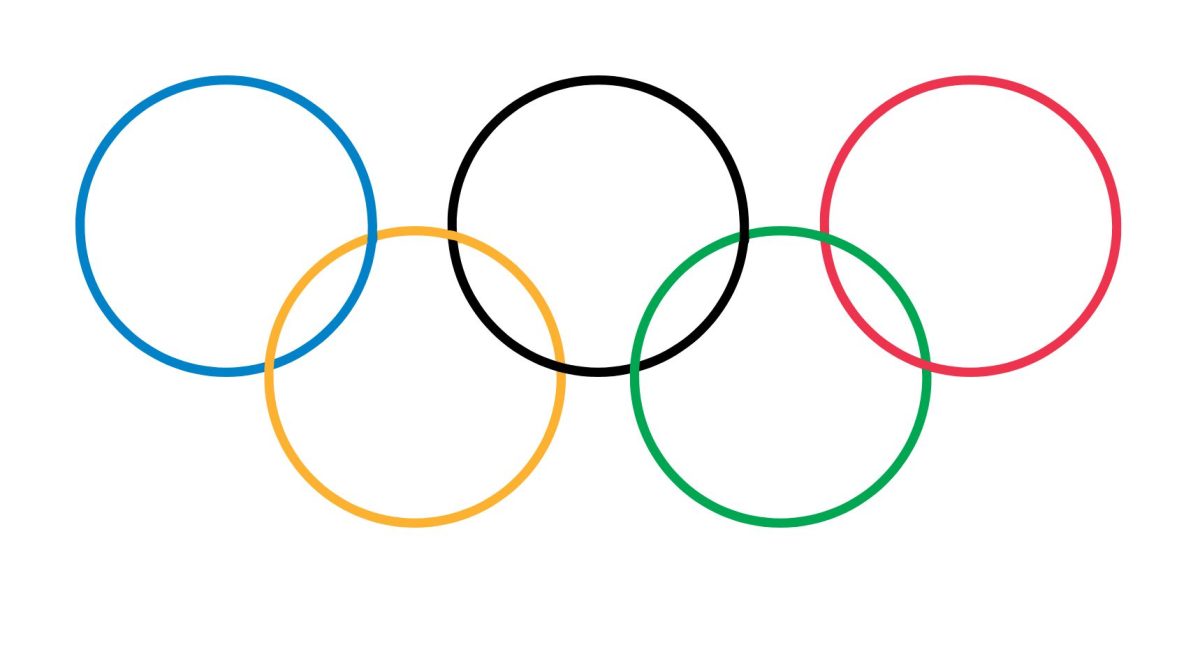
























![The teams prepare to start another play with just a few minutes left in the first half. The Lions were in the lead at halftime with a score of 27-0. At half time, the team went back to the locker rooms. “[We ate] orange slices,” Malos said. “[Then] our team came out and got the win.”](https://wlhsnow.com/wp-content/uploads/2023/10/IMG_2385-1200x800.jpg)
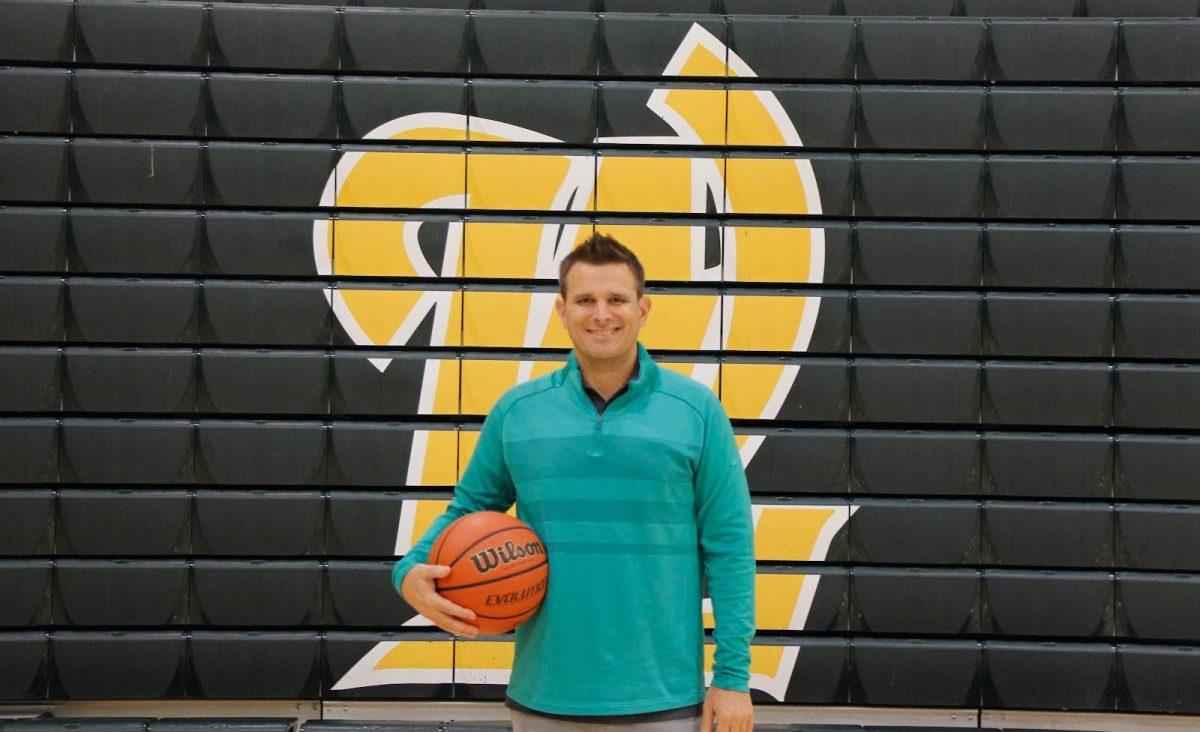







![At the bottom of the third inning, the Lions are still scoreless. Rowe stands at home plate, preparing to bat, while Vandenbrink stands off to the side as the next batter up. Despite having the bases loaded, the team was unable to score any runs. “It’s just the beginning of the season. We’re just going to be playing out best by June, [and] that’s where champions are,” Rowe said.](https://wlhsnow.com/wp-content/uploads/2024/03/IMG_3077-1200x900.jpg)











